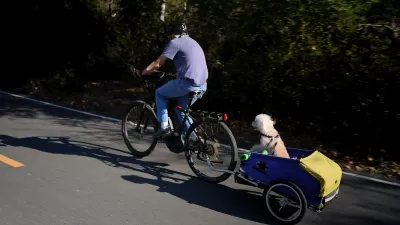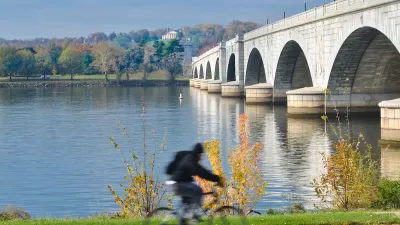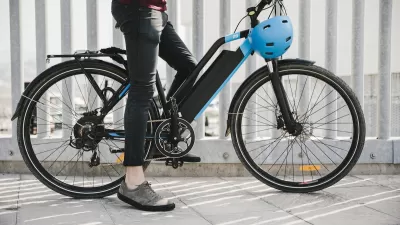The e-bike rebate program, first funded in 2021, is still a failure to launch.

California’s beleaguered e-bike incentive program is still not off the ground, writes Melanie Curry in Streetsblog California.
Curry notes that 77 vouchers have been distributed through a “soft launch,” but information about the program remains vague. According to Curry, “There is no information online about where the soft launch is happening or how people are finding out about it or which organizations are handling outreach. CARB staff have been very slow to respond to questions, and their answers have been vague and incomplete.”
Outlining the history of the program, the article highlights management and administration challenges that have delayed the program’s start. “CARB expects to give out on the order of 15,000 incentives from the initial allocation and, as far as anyone knows, still plans to do this via multiple application windows, into 2025.” The program has at least 20,000 interested parties, signaling that the rebates will likely run out quickly.
Curry concludes, “The biggest problem with this failure to launch is that even the total amount of money available is but a drop in the bucket. It will not structurally improve the affordability of e-bikes or create a huge mode shift, even if CARB were more dedicated to seeing it happen quickly.”
FULL STORY: What the Heck Is Going on with the State E-bike Incentive Program?

Planetizen Federal Action Tracker
A weekly monitor of how Trump’s orders and actions are impacting planners and planning in America.

Congressman Proposes Bill to Rename DC Metro “Trump Train”
The Make Autorail Great Again Act would withhold federal funding to the system until the Washington Metropolitan Area Transit Authority (WMATA), rebrands as the Washington Metropolitan Authority for Greater Access (WMAGA).

DARTSpace Platform Streamlines Dallas TOD Application Process
The Dallas transit agency hopes a shorter permitting timeline will boost transit-oriented development around rail stations.

Supreme Court Ruling in Pipeline Case Guts Federal Environmental Law
The decision limits the scope of a federal law that mandates extensive environmental impact reviews of energy, infrastructure, and transportation projects.

Texas State Bills to Defund Dallas Transit Die
DART would have seen a 30% service cut, $230M annual losses had the bills survived.

Bikeshare for the Win: Team Pedals to London Cricket Match, Beats Rivals Stuck in Traffic
While their opponents sat in gridlock, England's national cricket team hopped Lime bikes, riding to a 3-0 victory.
Urban Design for Planners 1: Software Tools
This six-course series explores essential urban design concepts using open source software and equips planners with the tools they need to participate fully in the urban design process.
Planning for Universal Design
Learn the tools for implementing Universal Design in planning regulations.
Roanoke Valley-Alleghany Regional Commission
City of Mt Shasta
City of Camden Redevelopment Agency
City of Astoria
Transportation Research & Education Center (TREC) at Portland State University
US High Speed Rail Association
City of Camden Redevelopment Agency
Municipality of Princeton (NJ)





























